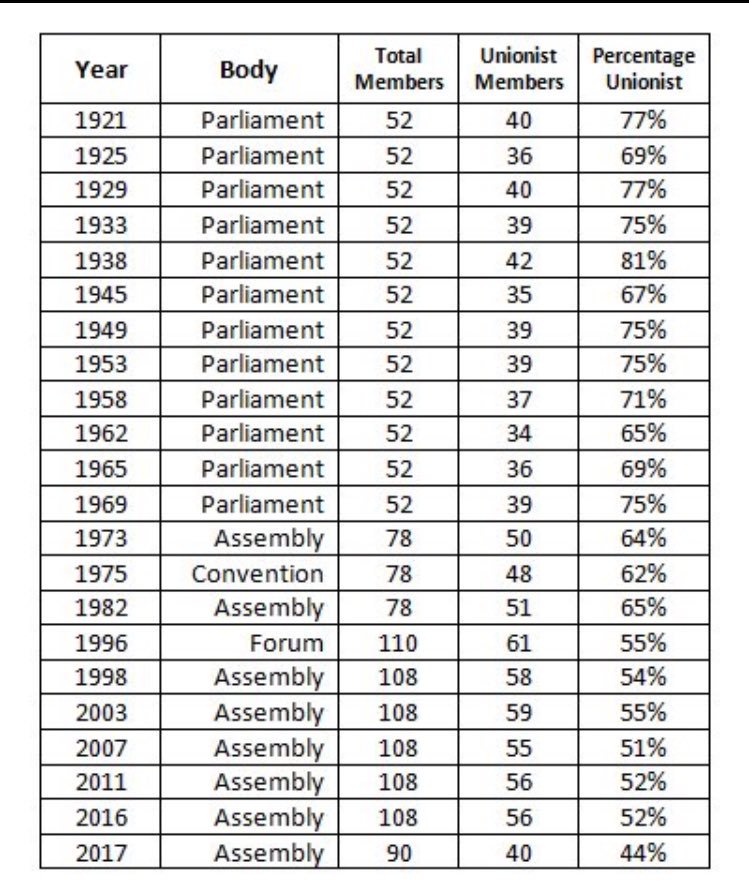
*Whyte, Nicholas (22 December 2016). “If the 2016 Assembly election had had five seats per constituency…”.
As Northern Ireland’s turbulent history takes another turn there is a widespread feeling that AE17 has changed the local political situation profoundly. It was a good result for Sinn Féin, there is no doubt about that, and for Alliance too, but what about the others? The DUP admitted to a bad day at the office and Mike Nesbitt has fallen on his sword. That much is clear, but most analysis of the election is fogged by the fact that comparison with the last election is difficult due to the reduction in the Assembly from 108 to 90 seats, meaning that most parties, even if they held their vote, were going to lose seats. The question therefore is not how many seats did the parties gain or lose but rather how did the result stack up against a ‘notional’ 2016 result
The above table, which includes data assimilated by fellow Slugger contributor, Nicholas White, shows what the last assembly would have looked like had it had 90 members. Obviously the parties may have approached the election differently in five seat constituencies, but by crunching the numbers and looking and looking at transfers, Nicholas came up with a notional 90-seat 2016 assembly highlighted in yellow.
As can be seen, the UUP and DUP were both poised to lose five seats in 2017 on a similar share of the vote. The UUP with a small increase in percentage vote lost the expected five seats plus one while the DUP with a modest 1.1% drop in vote share lost not only the five they could have expected to but another five again, double the expected loss. So last Thursday was a particularly bad day for the DUP despite any spin about increasing the overall vote. Foster boosted her vote by the usual ‘keep them out’ tactics but her difficulty was that for every additional DUP voter she got out, she inspired two for Sinn Féin. To add to her woes, the DUP is perhaps now the least transfer-friendly major party which makes picking up the fifth seat in a constituency increasingly difficult.
The UUP decline seems to have bottomed out, for the time being at least, but with the fair wind of the RHI scandal it should have done better and while it slowly increases its vote, the SDLP is losing its support in a similar, glacial manner, though thanks in part to UUP transfers it managed to avoid losing seats.
The centre held, as it was expected to. Neither Alliance nor the Greens were expected to lose seats and neither did. PBP was expected to lose one and it did, ending Eamon McCann’s brief career as an MLA.
The big surprise was of course Sinn Féin. It was expected to lose five seats but ended the day only one down, a gain of four over the 2016 notional result. In a way, the DUP, with crocodile jibes and removing a modest amount of Irish language funding – not enough to save worthwhile money, but enough to provoke – did most of Sinn Féin’s electioneering for it. The DUP, however, is unlikely to be so generous next time round.
Originally Posted by DannyInvincible









 Quote
Quote








Bookmarks